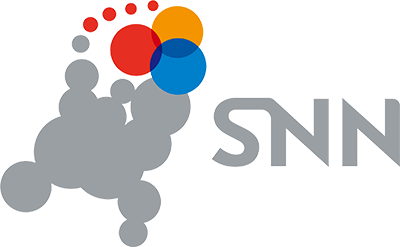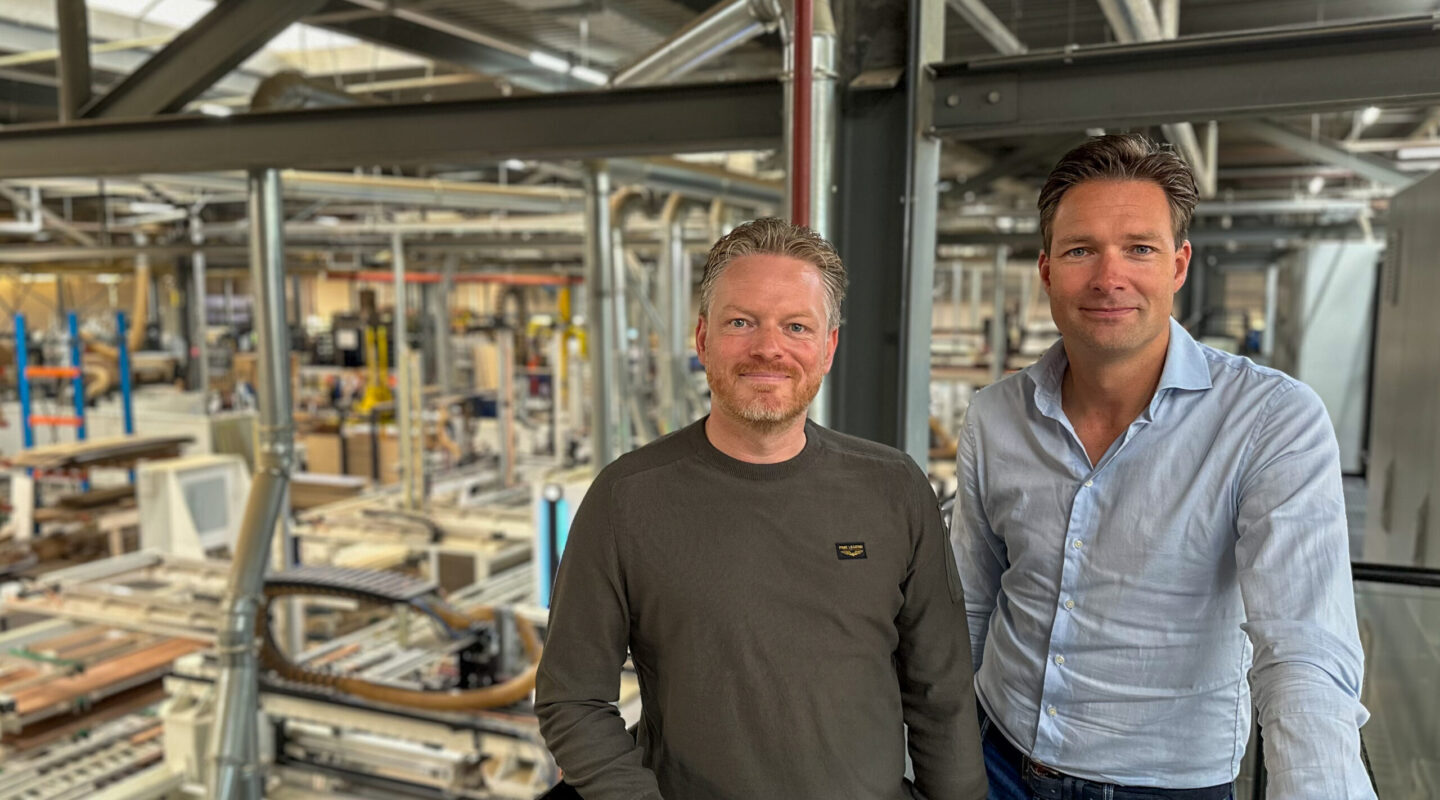Van Vuuren, a leading company in the production of doors, has a clear vision when it comes to sustainability and circularity. From the very beginning, they’ve been actively contributing to a circular economy. Circularity is part of their business operations, in the course of which they want to make the world a little more sustainable with every step they take. Dennis, one of the driving forces behind this transition, says: ‘We’ve been working on a circular economy for some time now. It’s a wonderful journey in which circularity has increasingly become an integral part of our company.’
Read our conversation with Dennis Gijsman, Managing Director and co-shareholder, Stephan Tjepkema, Head of Product Development.
Circularity as a distinguishing factor
For Van Vuuren, it’s not only important to make a good product, but also to consciously look at where their materials come from and how they are produced. Dennis explains: ‘Our job is to make the best doors, but it’s essential that we take the future into account. We can only survive if we’re at the forefront in certain areas, such as automation, robotisation, and of course sustainability and circularity.’
One of Van Vuuren’s key objectives is their focus on biobased materials, in which wood plays a central role. ‘Wood is a beautiful product by nature. But we keep asking ourselves: how can we make it even cleaner and more sustainable? How do we ensure that the products we sell are as clean as possible and can be reused?’ says Dennis. This also means the company is dependent on its suppliers, who often play an important role in the sustainability process.
From policy to shop floor: a joint effort
Stephan, who leads the substantive side of the circular transition, explains how this is applied in practice: ‘Van Vuuren applies the cradle-to-cradle principle, where we not only look at the product itself, but also at the people, water and energy needed to make it. Each department has specific sustainability goals. It has to be part of your daily business operations, not an additional task.’
This integration of sustainability into daily operations was an important step for Van Vuuren. Stephan continues: ‘In the beginning, we had a sustainability driver who coordinated the process, but now sustainability is part of every department, from procurement to sales. We want it to become a given, so that everyone makes more conscious choices in their work.’
Dennis emphasises the importance of this step-by-step approach: ‘We believe in small steps. In the long term, this is how we can really bring about change. It’s about asking ourselves every day how we can improve and ensuring that sustainability becomes an integral part of our culture.’
Working together and learn from others
Van Vuuren has joined various networks, such as Circulair Friesland, where they learn a lot from other organisations. ‘You can learn a lot from each other in a network,’ says Dennis. ‘You’re all searching for ways to fulfil your sustainable ambitions. Working together with suppliers and other companies helps us move forward.’
Stephan adds: ‘During peer meetings of Circulair Friesland, you come into contact with companies that you wouldn’t normally encounter. For instance, together with GreenInclusive we developed a greener door that we supplied for the biobased home in Nieuwehorne. It’s a great way to brainstorm and help each other with challenges you encounter.’
Collaboration with other sectors, such as educational institutions and healthcare organisations, also offers new insights. Dennis explains: ‘During the peer meeting we also spoke to Firda, an educational institution, and to Noorderbreedte, a healthcare institution, and didn’t only learn about making immovable property more sustainable, but also about how they think about sustainability in general. It’s about more than just replacing a door; we want to know how they look at the bigger picture.’
Proud of circular projects
One of the projects that Van Vuuren is particularly proud of is the development of a new door using fibre hemp. This door is the result of years of work and a long process of research into raw materials. ‘In Nieuwehorne we supplied this door for the first time for a biobased home,’ says Dennis. ‘It was the culmination of a journey we started in 2018, with the aim of creating a cleaner door that contains fewer toxic substances.’
Their fire-resistant doors, which comply with the cradle-to-cradle principle, are also an important result of their circular ambitions. Stephan adds: ‘90% of our range, including fire-resistant doors, now meets these requirements. This shows that sustainability and innovation can go hand in hand.’
The challenges of a circular transition
Although Van Vuuren has many successes, there are also challenges. Stephan shares his experiences since joining the company in 2018: ‘The board’s wish was to have a fully circular door within two years. But when I started, I had more questions than answers. The cradle-to-cradle principle was new, and although we were at the forefront, it was often difficult to get all the puzzle pieces in place.’
In practice, working with new materials and closing the chain proves to be more complicated than expected. ‘We are in touch with a lot of knowledge institutes and universities, but ideas sometimes crash because they are too expensive or because the supply chain isn’t properly connected. Yet we continue to ask questions, and that’s what helps us move forward.’
Lessons for the future
For companies that, like Van Vuuren, want to make the step towards a circular economy, Dennis has a clear message: ‘Be curious and engage in conversation with customers and suppliers. You don’t have to invent everything yourself. Events such as those of Circulair Friesland are useful opportunities to get in touch with other organisations and gain knowledge.’
Stephan concludes with an important lesson: ‘It’s important that you know where you want to go, but also be open to what comes your way. You often don’t know the solution yet, but by remaining open to new ideas and techniques, you will automatically make progress.’
With this open, inquisitive attitude and the constant drive to improve, Van Vuuren is steadily working on its circular ambitions. Step by step, they are building a cleaner, more sustainable future, in which circularity is a natural part of their business operations.
Back to overview



